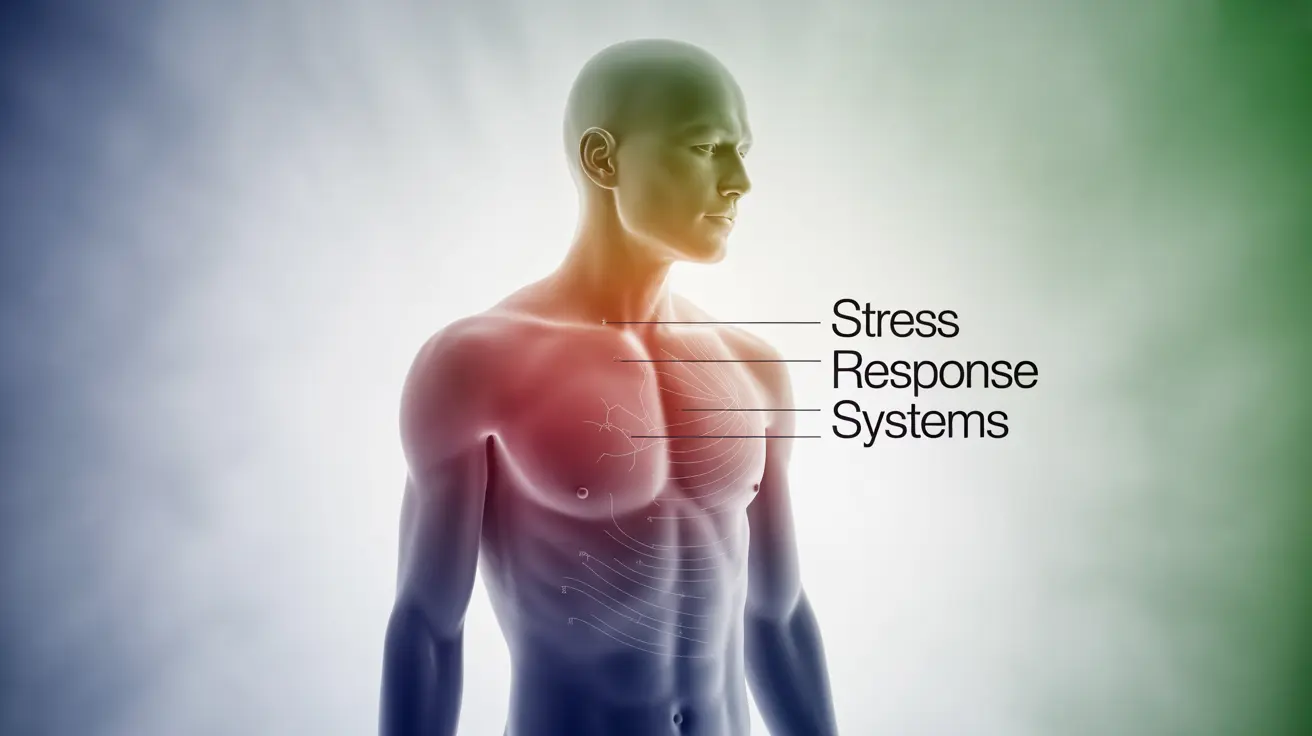When your body responds to stress, it triggers a cascade of physical reactions that can manifest in various uncomfortable and concerning ways. Understanding these physical symptoms of stress is crucial for recognizing when your body is signaling that it's time to take action and implement stress management strategies.
From digestive issues to cardiovascular changes, stress can affect nearly every system in your body. Let's explore these physical manifestations and learn how to effectively manage them for better overall health and well-being.
Common Physical Manifestations of Stress
Stress responses in the body typically manifest through several key systems:
Muscular Tension and Pain
One of the most immediate physical symptoms of stress is muscle tension. This commonly appears as:
- Tight shoulders and neck
- Lower back pain
- Jaw clenching
- Tension headaches
- General body stiffness
Cardiovascular Changes
Stress can significantly impact your heart and circulation, leading to:
- Increased heart rate
- Elevated blood pressure
- Chest tightness or pain
- Irregular heartbeat sensations
- Cold hands and feet due to restricted blood flow
Digestive System Impacts
The gut-brain connection means stress often affects digestive health through:
- Stomach upset and nausea
- Acid reflux
- Changes in appetite
- Irritable bowel symptoms
- Digestive discomfort
Long-Term Effects of Chronic Stress
When stress becomes chronic, it can lead to more serious physical symptoms and health concerns:
Immune System Changes
Prolonged stress can weaken your immune system, resulting in:
- Frequent infections
- Slower wound healing
- Increased inflammation
- Exacerbation of existing health conditions
Sleep Disturbances
Stress often disrupts normal sleep patterns, causing:
- Difficulty falling asleep
- Frequent waking
- Poor sleep quality
- Daytime fatigue
- Reduced cognitive function
Managing Physical Stress Symptoms
Taking proactive steps to manage stress can help alleviate its physical symptoms:
Immediate Relief Strategies
- Deep breathing exercises
- Progressive muscle relaxation
- Gentle stretching
- Short walks
- Mindfulness meditation
Lifestyle Modifications
Long-term stress management often requires sustainable lifestyle changes:
- Regular exercise routine
- Balanced nutrition
- Consistent sleep schedule
- Time management techniques
- Setting healthy boundaries
When to Seek Professional Help
While some stress symptoms are manageable at home, certain signs warrant medical attention:
- Persistent chest pain or pressure
- Severe sleep disruption
- Chronic digestive issues
- Overwhelming anxiety or depression
- Physical symptoms that interfere with daily life
Frequently Asked Questions
What are the common physical symptoms that indicate I might be experiencing stress?
Common physical symptoms of stress include muscle tension, headaches, rapid heartbeat, digestive issues, sleep problems, fatigue, and frequent infections. These symptoms often appear gradually and may worsen if stress isn't properly managed.
How does stress affect digestion and what digestive problems can it cause?
Stress can significantly impact digestion by altering gut motility and increasing inflammation. This can lead to symptoms such as acid reflux, stomach pain, nausea, diarrhea, constipation, and changes in appetite. The gut-brain connection means stress can both trigger and exacerbate digestive issues.
Can chronic stress lead to heart-related symptoms like chest pain and rapid heartbeat?
Yes, chronic stress can cause cardiovascular symptoms including increased heart rate, chest pain, palpitations, and elevated blood pressure. These symptoms occur due to the release of stress hormones that affect heart function and blood vessel constriction.
What are effective ways to manage or reduce the physical symptoms caused by stress?
Effective stress management techniques include regular exercise, deep breathing exercises, meditation, progressive muscle relaxation, maintaining a healthy sleep schedule, and proper nutrition. Professional support through counseling or therapy can also be beneficial.
When should I seek medical help for physical symptoms related to stress?
Seek medical attention if you experience severe or persistent chest pain, significant sleep disruption, chronic digestive issues that don't improve with lifestyle changes, or if stress symptoms significantly impact your daily functioning. It's also important to get medical help if you develop symptoms of anxiety or depression.




